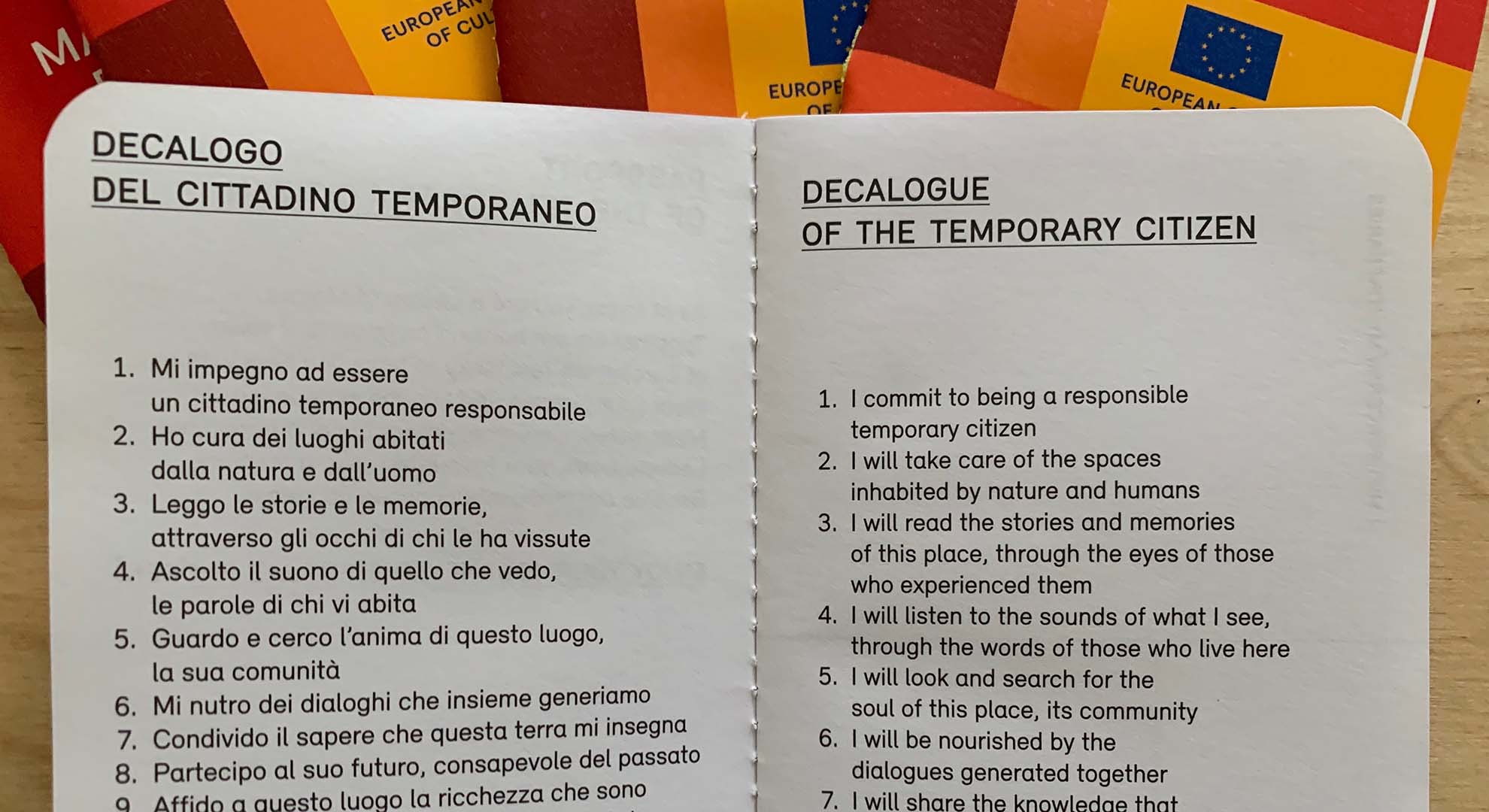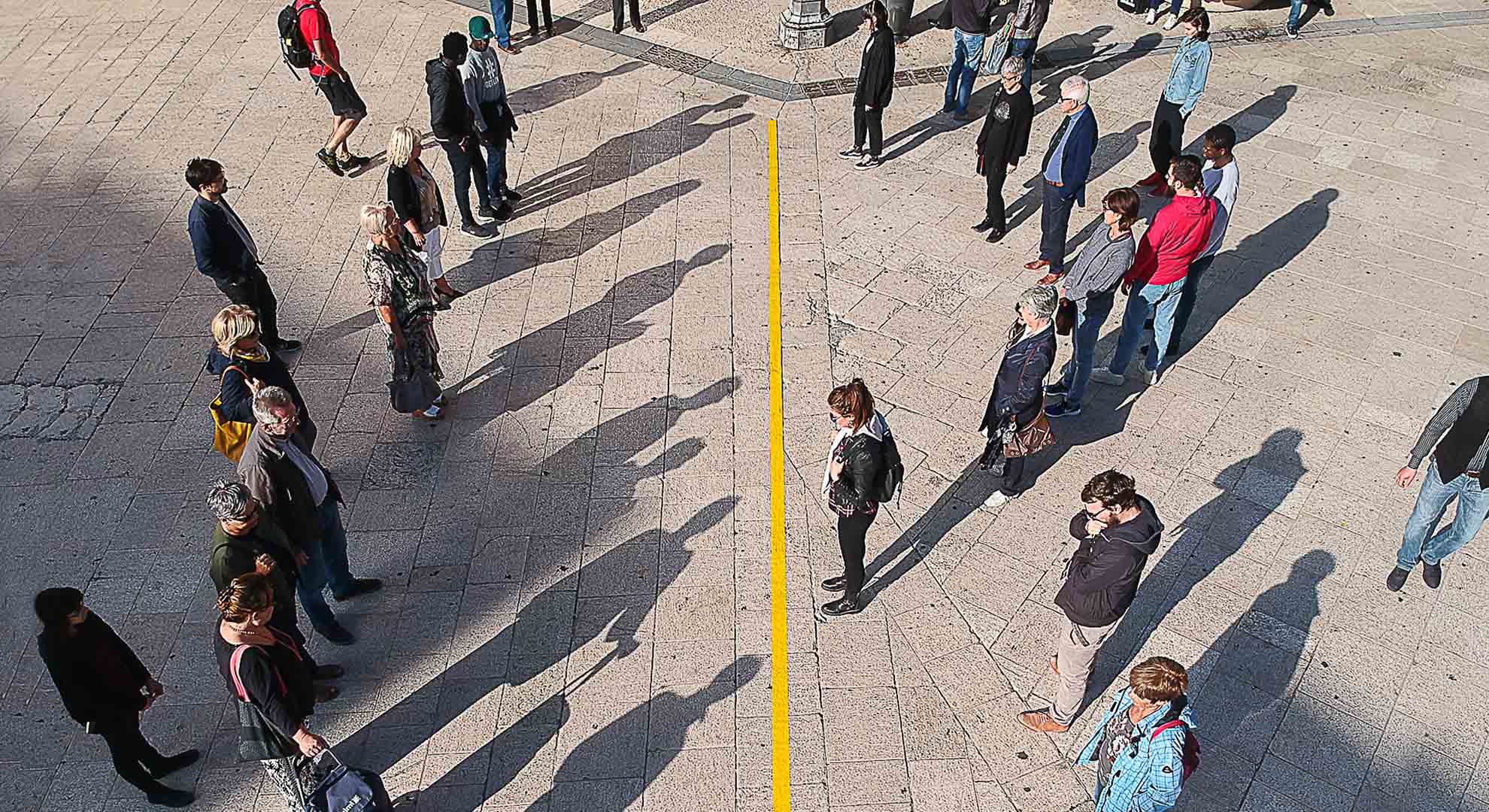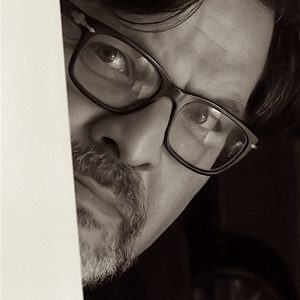Temporary Citizenship to Reimagine our Cities
Looking at tourism as a “social revolution”
Looking at tourism as a “social revolution”

Therefore, we must rethink our cities in light of the pressure of tourism, and consider if tourists are becoming a significant new political/social “gender.” In the process of becoming the European Capital of Culture, here in Matera we invented a new term for them, “temporary citizens.” This is not only a fancy catchphrase, instead it’s a way of switching the focus from the place being visited to the community that inhabits that place. A definition that also looks at the concept of citizenship not in a static way—trapped within legal borders—but rather as a fluid classification. Our contemporary cities must reimagine themselves as capable of dealing with increasing flows of citizens passing through, including migrants.
We have to stop concentrating on the selfies of our past, as stagnant stories of “what we were” if those conditions are no longer viable. What do we see in Venice, which by the way, became famous exactly for its fluid economy? A celebration of the dead past? Where is the vision of the future? How can the past transform itself, abandon the rhetoric of empty storytelling and generate the foundation for a new polis?

We need to change the immobile “monuments” of cultural heritage: culture must be redefined from something “to be seen” to a platform that starts from the past and rethinks the future. I often say, provocatively, that Western thought has invented one specific element: public space, and the continuous dialogue between the public and private will redesign our cities. Now we have to redraw public space according to the new concept of “temporary citizenship,” abandoning the old concept of centers and peripheries; generating public spaces for new communities beyond the old borders; and dismissing the ancient cartography.
New narratives must be produced, where wandering memories can be captured also at the limits of the cities themselves, to feed the imagination of a new way of inhabiting the space. And with these flowing energies, we must also invent new economies, which are not limited to restaurants, bars, hotels and B&Bs, to also be able to create a new concept of labor.
But can we support the growing pressure of “overtourism”? How can a city physically sustain the feared horde of “invaders”? New rules must be conceived that abandon the idea of defense walls built to protect the old image of the city: a new concept of “humanities” must be established, to redefine the space where we live, to challenge a new concept of public space, to develop a new idea of open citizenship.
MAIN IMAGE: Purgatory, Public Call for the “Divine Comedy” by Dante Alighieri for the European Capital of Culture 2019, Teatro della Albe, Matera 2019. Photo courtesy: Matera 2019
